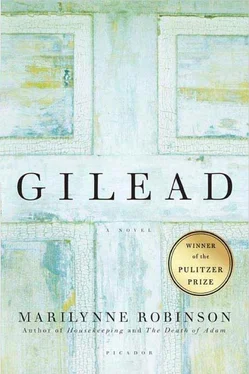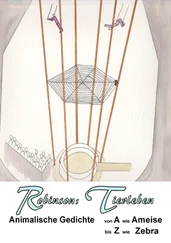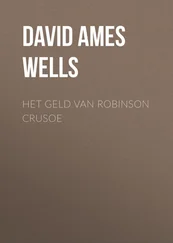***
I’ve started The Trail of the Lonesome Pine. I went over to the library and got a copy for myself, since your mother can’t part with hers. I believe she’s reading through it again. I’d forgotten it entirely, if I ever read it at all. There’s a young girl who falls in love with an older man. She tells him, “I’ll go with ye anywhar.” That made me laugh. I guess it’s a pretty good book. He isn’t old like I am, but then your mother isn’t young like the girl in the book is, either.
This week I intend to preach on Genesis 21:14–21, which is the story of Hagar and Ishmael. If these were ordinary times — if I were twenty years younger — I’d be making an orderly passage through the Gospels and the Epistles before I turned to Genesis again. That was my custom, and I have always felt it was effective as teaching, which is really what all this is about. Now, though, I talk about whatever is on my mind — Hagar and Ishmael at the moment.
The story of Hagar and Ishmael came to mind while I was praying this morning, and I found a great assurance in it. The story says that it is not only the father of a child who cares for its life, who protects its mother, and it says that even if the mother can’t find a way to provide for it, or herself, provision will be made. At that level it is a story full of comfort. That is how life goes — we send our children into the wilderness. Some of them on the day they are born, it seems, for all the help we can give them. Some of them seem to be a kind of wilderness unto themselves. But there must be angels there, too, and springs of water. Even that wilderness, the very habitation of jackals, is the Lord’s. I need to bear this in mind.
Young Boughton came by to see if you felt like a game of catch. You did. He was sunburned from working in the garden.
It gave him a healthy, honest look. He’s teaching you to throw overhand. He said he couldn’t stay for supper. You were disappointed, as I believe your mother was also.
The moon looks wonderful in this warm evening light, just as a candle flame looks beautiful in the light of morning. Light within light. It seems like a metaphor for something. So much does. Ralph Waldo Emerson is excellent on this point.
It seems to me to be a metaphor for the human soul, the singular light within the great general light of existence. Or it seems like poetry within language. Perhaps wisdom within experience. Or marriage within friendship and love. I’ll try to remember to use this. I believe I see a place for it in my thoughts on Hagar and Ishmael. Their time in the wilderness seems like a specific moment of divine Providence within the whole providential regime of Creation.
Just before suppertime yesterday evening Jack Boughton came strolling by. He sat himself down on the porch step and talked baseball and politics — he favors the Yankees, which he has every right to do — until the fragrance of macaroni and cheese so obtruded itself that I was obliged to invite him in. You and your mother still regard him as a fairly wonderful surprise, this John Ames Boughton with his quiet voice and his preacherly manner, which, by the way, he has done nothing to earn, or to deserve. To the best of my knowledge, at any rate. He had it even as a child, and I always found that disturbing. Maybe it’s something he isn’t conscious of, growing up the way he did. But it seems to me sometimes that there’s an element of parody in it. I wonder if he acts that way everywhere, or if he does it only around me, and around his father. What do I mean by preacherly? There’s a way of being formal and deferential and at the same time cordial, while maintaining an air of dignified authority, which is preacherly. I never mastered this myself, but my father had it and Boughton had it. My grandfather, that old Nazirite, was impressive in another style. But of sheer and perfect preacherliness I have never seen a finer example than this Jack Boughton, heathen that he is, or was. Your mother asked him if he would like to say grace, and he did, with an elegant simplicity that seemed almost wasted on macaroni and cheese.
He mentioned that I had not been to see his father in a few days, which is the truth, and which is no coincidence either. I thought he might be at his father’s only a few days. It has been one of the great irritations of my life, seeing the two of them together. I hoped to stay away till he left, but clearly he is not about to do that.
In the old days I used to come into the kitchen and look around in the pantry and the icebox, and generally I’d find a pot full of soup or stew or a casserole of some kind, which I would warm up or not depending on my mood. If I didn’t find anything, I’d eat cold baked beans and fried-egg sandwiches — which, by the way, I enjoyed. I’d find pie or biscuits on the table sometimes. When I was at the church or up in my study, one of the women would just step in the door and leave dinner there for me and go away, and then another day she’d come back and take her pan and her tea towels or whatever and go away. I’d find jam and pickles and smoked fish. Once I found liver pills. It was a strange life, with its own pleasures.
Then, when your mother and I got married, it was a little hard for people to learn that they couldn’t just come and go anymore. They suspected she was not a cook, I believe, and in fact she was not, so they kept coming in the door with their casseroles until I realized it upset her, and then I spoke with them about it. I found her crying in the pantry one evening. Someone had come in and changed the pull cord on the light and put new paper down on the shelves. It was kindly intended, but not considerate, I understand that.
I mention this because it seemed so strange to me to be sitting there with the two of you and young Boughton, of all people. Because not so many years ago I was sitting at that table in the dark eating cold meat loaf from the pan it came in, listening to the radio, when old Boughton let himself in the door and sat down at the table and said, “Don’t put the light on.” So I turned the radio off and we sat there together and talked and prayed, about John Ames Boughton, for John Ames Boughton.
But that story may be more than you need to know, more than I ought to tell you. If things have come right, what is the point? There’s nothing very remarkable in the story, in fact it is very commonplace. Which is not an extenuation by any means. So often people tell me about some wickedness they’ve been up to, or they’ve suffered from, and I think, Oh, that again! I’ve heard of churches in the South that oblige people to make a public confession of their graver sins to the whole congregation. I think sometimes there might be an advantage in making people aware how worn and stale these old transgressions are. It might take some of the shine off them, for those who are tempted. But I have no evidence to suggest it has that effect. Of course there are special and extenuating circumstances. They were fairly special in young Boughton’s case and by no means extenuating, if I am any judge. Which I am not, or ought not to be, according to Scripture.
Transgression. That is legalism. There is never just one transgression. There is a wound in the flesh of human life that scars when it heals and often enough seems never to heal at all. Avoid transgression. How’s that for advice.
I have to decide what to tell your mother. I know she is wondering. He’s very nice to her, and to you. And to me. No “Papa” this evening, thank goodness. He’s so respectful I feel like telling him I’m not the oldest man in the world yet. Well, I know I’m touchy about some things. I have to try to be fair with him.
You look at him as if he were Charles Lindbergh. He keeps calling you little brother, and you love that.
Читать дальше












